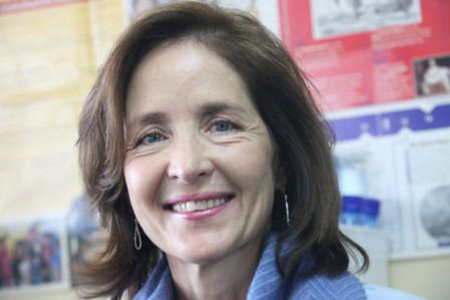Prof Van Eeden recently took part in a televised debate pertaining to the announcement by South Africa’s minister of Basic Education, Minister Angie Motshekga, that the history curriculum at school level needs a major overhaul. According to the recommendation by a ministerial task team, history should be made compulsory in the final three years of high school as from 2023.
It is Prof Van Eeden’s view – which is also echoed by several historians and educationalists from across the country – that this proposal faces steep challenges.
- The availability of well-trained history teachers
According to Prof Van Eeden one of the key concerns that is being raised is if the higher education sector will be able to produce enough history teachers to meet the demand created by the implementation of such an entrenched history curriculum. Add to this the current funding conundrum facing institutions of higher learning, it becomes clear why this stumbling block is inevitable.
- A lack of proper consultation
Prof Van Eeden explains that the decision by government to make history a compulsory subject seems to have been taken without consulting with historians and educational experts on issues such as scope, teaching pedagogies and implementation. “The lack of proper consultation is my biggest criticism regarding this intervention,” says Prof Van Eeden and adds that it now seems as if the intervention is directly linked to the ruling party and hence a specific political ideology.
- Repeating the mistakes of the past
She furthermore explains that during the 1960’s this type of government intervention was also prevalent, and that is was met with the same concerns as now. “Even back then the government tried to manage the history of the day by focusing on ideology, and henceforth the result was a one-sided affair,” says Prof Van Eeden, and concludes by saying that history cannot be ideologised.
More about Prof Van Eeden
Elize completed the first degree in 1981 at the University of Johannesburg. In 1985 she obtained a BAHons in history (University of South Africa, Pretoria); a MA in history with distinction (NWU) with the dissertation titled “The History of the Gatsrand since the settlement of the first Emigrants (Trekkers/Voortrekkers) up to the proclamation of the town Carletonville”.
She obtained a PhD in 1992 with research on economic development and its influence on Carletonville in the period 1948-1988.
Elize started her professional career in 1982 as teacher. In 1986 she made a short appearance as regional researcher at the Potchefstroom Museum. In July 1986 her career as research scientist started at the former Potchefstroom University for Christian Higher Education. In 2000 she was promoted to associate professor. From 2002 she is employed at the campus in Vanderbijlpark and was promoted to full professor in 2009.
She has published widely and has contributed to various journals, yearbooks, textbooks and the publication of several local, corporate and general history book publications. She has been honoured as the most active researcher on the campus in Vanderbijlpark and as a top-ten researcher at the university. At present she is busy with integrative multidisciplinary research.

Prof Elize van Eeden.
#NWUWomen
